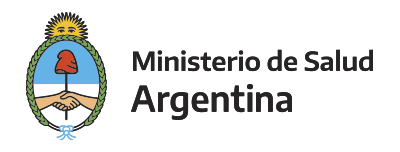Por favor, use este identificador para citar o enlazar este ítem:
http://sgc.anlis.gob.ar/handle/123456789/1949| Campo DC | Valor | Lengua/Idioma |
|---|---|---|
| dc.contributor.author | Abad, Raquel | es |
| dc.contributor.author | Agudelo, Clara Inés | es |
| dc.contributor.author | Brandileone, María Cristina | es |
| dc.contributor.author | Chanto, Grettel | es |
| dc.contributor.author | Gabastou, Jean-Marc | es |
| dc.contributor.author | Hormazabal, Juan Carlos | es |
| dc.contributor.author | O Gorla, M Cecilia | es |
| dc.contributor.author | Maldonado, Aurora | es |
| dc.contributor.author | Moreno, Jaime | es |
| dc.contributor.author | Muros-Le Rouzic, Erwan | es |
| dc.contributor.author | Lersch, Robert | es |
| dc.contributor.author | Regueira, Mabel | es |
| dc.contributor.author | Salcedo, Celia | es |
| dc.contributor.author | Sorhouet Pereira, Cecilia | es |
| dc.contributor.author | Vázquez, Julio A. | es |
| dc.date.accessioned | 2020-12-18T16:02:22Z | - |
| dc.date.available | 2020-12-18T16:02:22Z | - |
| dc.date.issued | 2009-08 | - |
| dc.identifier.issn | 0163-4453 | - |
| dc.identifier.uri | http://sgc.anlis.gob.ar/handle/123456789/1949 | - |
| dc.description | Fil: Abad, Raquel. Instituto de Salud Carlos III. Centro Nacional de Microbiología. Reference Laboratory for Meningococci; España. | es |
| dc.description | Fil: Agudelo, Clara Inés. Instituto Nacional de Salud (INS). Microbiología; Colombia. | es |
| dc.description | Fil: Brandileone, María Cristina. Adolfo Lutz Institute. Bacteriology Branch; Brasil. | es |
| dc.description | Fil: Chanto, Grettel. Centro Nacional de Referencia en Bacteriología (INCIENSA); Costa Rica. | es |
| dc.description | Fil: Gabastou, Jean-Marc. Pan American Health Organization (PAHO)/World Health Organization (WHO). Vacunas y Tecnologías de Salud. Unidad de Medicamentos Esenciales; Ecuador. | es |
| dc.description | Fil: Hormazabal, Juan Carlos. Instituto de Salud Pública (ISP). Bacteriología; Chile. | es |
| dc.description | Fil: O Gorla, M Cecilia. Adolfo Lutz Institute. Bacteriology Branch; Brasil. | es |
| dc.description | Fil: Maldonado, Aurora. Instituto de Salud Pública (ISP). Bacteriología; Chile. | es |
| dc.description | Fil: Moreno, Jaime. Instituto Nacional de Salud (INS). Microbiología; Colombia. | es |
| dc.description | Fil: Muros-Le Rouzic, Erwan. Sanofi-Pasteur. Global Scientific and Medical Affairs; Francia. | es |
| dc.description | Fil: Lersch, Robert. Sanofi-Pasteur. Global Scientific and Medical Affairs; Francia. | es |
| dc.description | Fil: Regueira, Mabel. ANLIS Dr.C.G.Malbrán. Instituto Nacional de Enfermedades Infecciosas. Departamento de Bacteriología; Argentina. | es |
| dc.description | Fil: Salcedo, Celia. Instituto de Salud Carlos III. Centro Nacional de Microbiología. Reference Laboratory for Meningococci; España. | es |
| dc.description | Fil: Sorhouet, Cecilia. ANLIS Dr.C.G.Malbrán. Instituto Nacional de Enfermedades Infecciosas. Departamento de Bacteriología; Argentina. | es |
| dc.description | Fil: Vázquez, Julio A. Instituto de Salud Carlos III. Centro Nacional de Microbiología. Reference Laboratory for Meningococci; España. | es |
| dc.description.abstract | Objectives: To improve the understanding of serogroup Y invasive meningococcal disease (IMD) in Latin America, particularly IMD molecular epidemiology; 166 Y serogroup isolates received at the National Reference Laboratories of Argentina, Brazil, Chile, Colombia, and Costa Rica during 2000-2006 were characterized by their molecular markers. Methods: This analysis included serological assays to determine serogroup/serotype/serosubtype, DNA sequencing and genotyping of the porB and/or porA genes, multilocus sequence typing (MLST) and fetA allele determination. Results: Sixteen different antigenic combinations were observed. Sixty-two (37.3%) isolates were NT:P1.5 and 36 (21.7%) isolates were 14:NST. Thirty-two different STs appeared, but 3 STs (ST-1624, ST-23, and ST-5770) accounted for 69.9% (116) of the strains. Most of the IMD isolates belonged to the ST-23, ST-167 clonal complexes or the group composed by ST-5770 and related STs. Conclusions: Isolates obtained in Colombia and Costa Rica were similar to that of the United States, in that most sequence types belonged to the ST-23 clonal complex. IMD isolates found in Argentina appear to be the result of an independent event and did not spread from nearby countries, being the sequence type ST-1624 (ST-167 clonal complex) the most frequently found. We were unable to correlate an antigenic shift of outer membrane proteins with an increase of serogroup Y meningococcal cases in our collection of isolates. | es |
| dc.format | - | |
| dc.language.iso | en | es |
| dc.relation.ispartof | Journal of infection | es |
| dc.rights | Closed Access | - |
| dc.source | Journal of Infection 2009;59(2):104-114 | - |
| dc.subject | Neisseria meningitidis Serogrupo Y | es |
| dc.subject | Neisseria meningitidis | es |
| dc.subject | Infecciones Meningocócicas | es |
| dc.title | Molecular characterization of invasive serogroup Y Neisseria meningitidis strains isolated in the Latin America region | es |
| dc.type | Artículo | es |
| dc.identifier.doi | 10.1016/j.jinf.2009.06.001 | - |
| anlis.essnrd | 1 | - |
| item.fulltext | No Fulltext | - |
| item.languageiso639-1 | en | - |
| item.openairetype | Artículo | - |
| item.grantfulltext | none | - |
| item.cerifentitytype | Publications | - |
| item.openairecristype | http://purl.org/coar/resource_type/c_18cf | - |
| Aparece en las colecciones: | Publicaciones INEI | |
Visualizaciones de página(s)
131
comprobado en 14-feb-2026
Google ScholarTM
Consultar
Altmetric
Altmetric
Los ítems de DSpace están protegidos por copyright, con todos los derechos reservados, a menos que se indique lo contrario.

